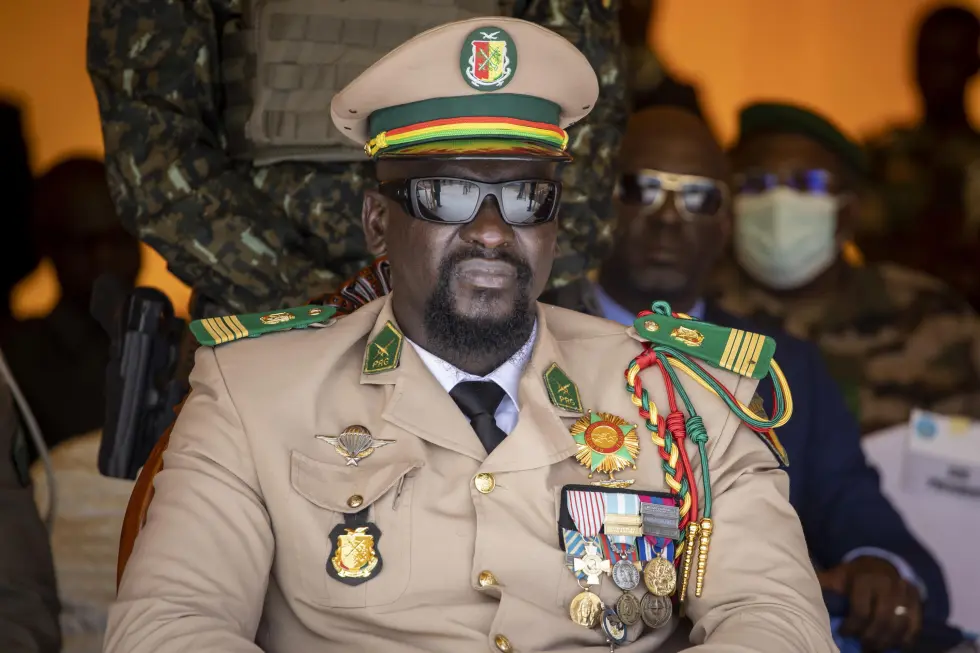The political landscape of West Africa has witnessed a series of military coups in recent years, prompting concerns about the region’s stability and its relationships with the international community. Guinea, a West African nation that experienced a military coup in 2021 led by Colonel Mamady Doumbouya, serves as a noteworthy case study. This article aims to explore the evolving dynamics of security and economic relations between West African nations and the West in the aftermath of military coups. Additionally, the recent decision by the Economic Community of West African States (ECOWAS) to drop sanctions against Guinea will be analysed in the context of these changing dynamics.
Colonel Mamady Doumbouya’s rise to power in Guinea in September 2021 marked a significant turning point for the country. Citing rampant corruption, human rights abuses, and economic mismanagement under the leadership of President Alpha Condé, Doumbouya justified the coup as a necessary intervention by the military. The international community, particularly West African neighbors and Western nations, expressed concerns about the democratic backslide and the potential impact on regional stability.
The aftermath of the coup saw the dissolution of the government, closure of borders, and the seizure of passports and freezing of bank accounts of ousted officials. While the junta leader promised to restore democratic rule through elections by the end of 2024, the imposition of a ban on demonstrations and the detention of opposition leaders raised questions about the junta’s commitment to democratic values.
One intriguing aspect of recent West African coups is the shifting geopolitical alliances. Traditionally, former French colonies in the region maintained strong ties with France and the West. However, the juntas that came to power in Mali, Niger, and Burkina Faso demonstrated a pivot towards Russia while expressing hostility towards France and regional blocs like ECOWAS. In contrast, Colonel Doumbouya in Guinea has pursued a more balanced approach, seeking to maintain positive relations with all sides.
The Russian Embassy’s recent warning to its nationals in Guinea, followed by an apology from Ambassador Alexey Popov to the junta, highlights the delicate nature of these diplomatic relations. The incident underscores the potential for misunderstandings and the need for clear communication to avoid further tensions. However, both parties have emphasized that this incident will not negatively impact the overall relations between Guinea and Russia.
The international community, particularly regional organizations like ECOWAS, plays a crucial role in responding to military coups. In the case of Guinea, ECOWAS swiftly imposed sanctions on the junta, targeting key individuals and entities associated with the coup. These measures were intended to pressure the junta to return to constitutional order and restore democratic governance.
However, in a surprising turn of events, ECOWAS recently announced the lifting of sanctions against Guinea. This decision has sparked discussions about the effectiveness of sanctions as a tool for influencing political developments in the region. Some argue that the lifting of sanctions indicates a pragmatic recognition of the junta’s commitment to organizing elections and a willingness to engage in dialogue with the international community.
As West African nations navigate the aftermath of military coups, the complex interplay between security and economic relations with the West comes into focus. The evolving diplomatic landscape, characterized by shifting alliances and nuanced approaches by junta leaders, presents both challenges and opportunities for regional stability.
On the security front, the ability of West African nations to engage constructively with the international community is crucial for addressing shared challenges such as terrorism, transnational crime, and border security. While the recent incidents may strain relations temporarily, pragmatic diplomacy and a commitment to addressing common security concerns could pave the way for renewed collaboration.
Economically, the West has been a significant partner for West African nations in terms of trade, development assistance, and investment. The impact of military coups on economic relations depends on the junta’s policies and their alignment with international norms. A commitment to good governance, transparency, and economic reforms could help rebuild trust and attract foreign investments.
In conclusion, the recent wave of military coups in West Africa has reshaped the geopolitical landscape, challenging established norms of diplomatic relations with the West. Guinea’s experience under Colonel Mamady Doumbouya’s junta, coupled with the lifting of ECOWAS sanctions, highlights the nuanced and evolving dynamics in the region. The path forward requires a delicate balance between addressing security concerns and fostering economic cooperation. As West African nations navigate this complex terrain, the international community must engage in dialogue and diplomacy to encourage democratic governance, respect for human rights, and sustainable development in the region.
Image Credit: AP News




